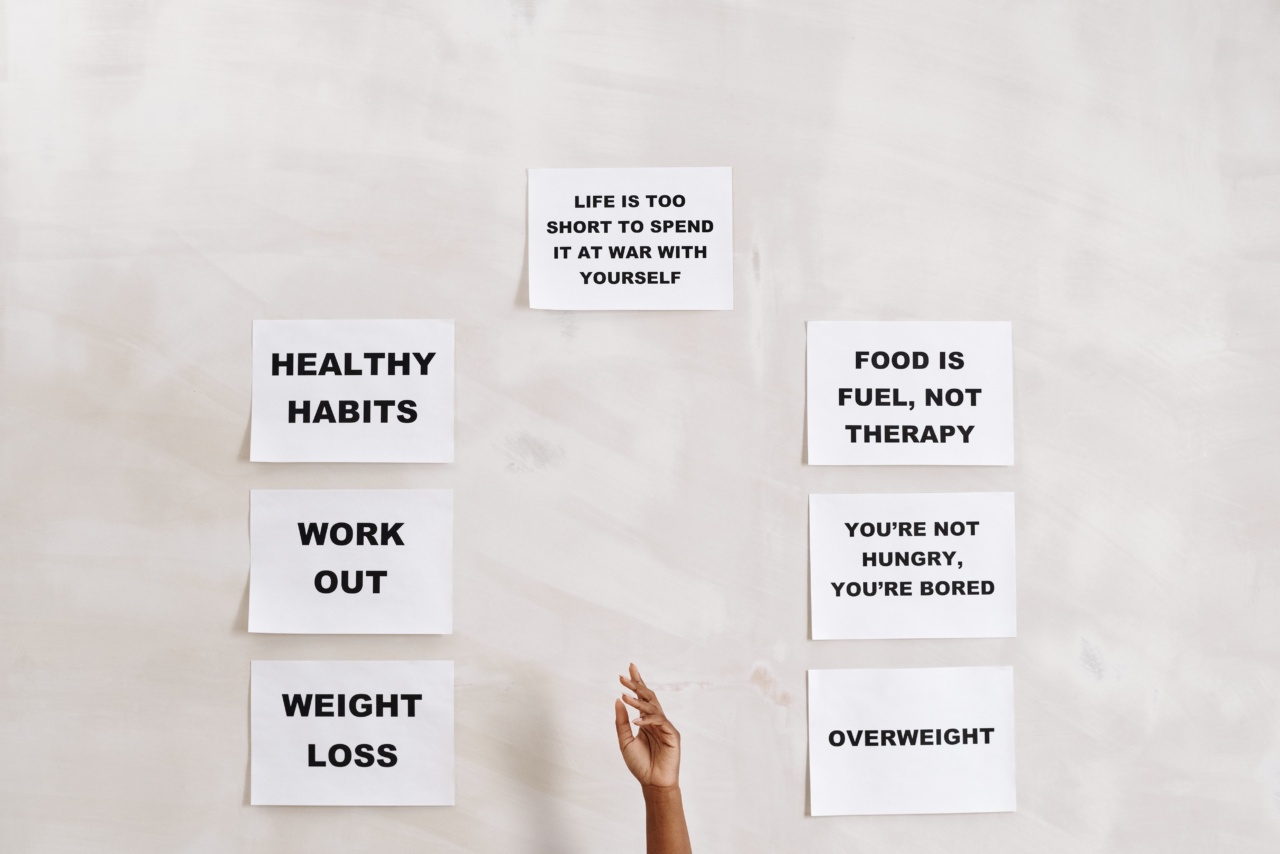In today’s world, where food is readily available and easily accessible, it’s common for people to confuse genuine hunger with boredom.
Many of us find ourselves reaching for a snack or indulging in unnecessary meals when we are actually just bored and in need of stimulation. Understanding the difference between genuine hunger and boredom is crucial for maintaining a healthy and balanced diet.
The Science Behind Hunger
Hunger is a complex physiological response that involves various hormones and signals from the body. When our body requires energy, the hormone ghrelin is released, which signals the brain that it’s time to eat.
This physiological hunger is characterized by specific physical sensations such as stomach growling and a sensation of emptiness. When we eat, our body releases hormones like leptin, which signal to the brain that we are full and no longer need to eat.
The Emotional Aspect of Hunger
However, hunger isn’t solely driven by physiological factors; it can also be influenced by emotional and psychological cues. In some instances, people may turn to food as a way to cope with stress, boredom, or other negative emotions.
This emotional hunger often leads to mindless eating and choosing food items that are high in calories but low in nutritional value.
Recognizing Genuine Hunger
One of the first steps in determining whether you are genuinely hungry or just bored is to pay attention to your body’s hunger cues.
Genuine hunger often presents itself with physical symptoms such as stomach growling, a feeling of emptiness, and even physical weakness. These sensations are usually accompanied by a gradual increase in hunger as time passes since the last meal.
Additionally, genuine hunger tends to be satisfied with a variety of foods, particularly those that are rich in nutrients.
When you are truly hungry, you are more likely to enjoy and appreciate the taste of a balanced meal, rather than mindlessly snacking on unhealthy foods.
The Impact of Boredom on Eating Habits
Boredom can be a significant driver of overeating or unnecessary snacking. When we are bored, our brain seeks stimulation, and food can provide a temporary distraction.
However, this often leads to consuming excess calories that our body doesn’t actually need.
Furthermore, boredom can be confused with hunger due to the absence of any other activity or source of entertainment. As a result, we may end up mindlessly eating in an attempt to alleviate the feeling of boredom, even when we are not genuinely hungry.
Strategies to Combat Boredom Eating
If you find yourself reaching for food out of boredom rather than genuine hunger, there are several strategies you can adopt to prevent mindless snacking:.
1. Identify triggers:
Pay attention to situations or activities that often lead to boredom eating. It could be certain times of the day, specific places, or certain emotions. By recognizing these triggers, you can intervene before reaching for unnecessary snacks.
2. Find alternative activities:
Instead of turning to food for entertainment, find alternative activities that can distract you from boredom. Engage in hobbies, read a book, take a walk, or engage in any activity that keeps your mind occupied and stimulated.
3. Practice mindful eating:
Mindful eating involves being fully present and attentive while eating. When you do eat, take the time to savor each bite, appreciate the flavors, and listen to your body’s cues of fullness.
This practice can help differentiate between genuine hunger and boredom.
4. Stay hydrated:
Dehydration can often be confused with hunger. Whenever you feel the urge to eat out of boredom, drink a glass of water first. This can help quench your thirst and reduce the chances of unnecessary snacking.
5. Plan satisfying meals:
One way to prevent boredom eating is to plan satisfying and nutritious meals in advance. By having a well-balanced meal to look forward to, you are less likely to snack out of boredom.
The Importance of Emotional Well-being
It’s essential to address the emotional aspect of hunger and boredom eating. If you find yourself repeatedly turning to food as a coping mechanism, it may be helpful to seek support from a therapist or counselor.
Understanding and addressing the underlying emotional triggers can assist in developing healthier habits and coping mechanisms.
Conclusion
Distinguishing between genuine hunger and boredom is crucial for maintaining a healthy lifestyle.
By paying attention to your body’s hunger cues, identifying triggers for boredom eating, and adopting strategies to combat mindless snacking, you can develop a healthier relationship with food. Remember, food should primarily be enjoyed for nourishment, not as a way to fill the void of boredom or emotional distress.





























